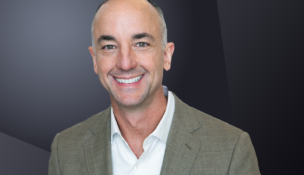Government | Politics
Lobbying
AMANDA CHASE
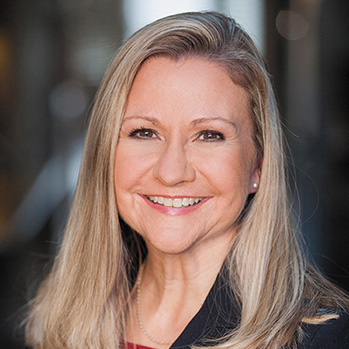
SENATOR, SENATE OF VIRGINIA, CHESTERFIELD
Chase is a proud, even defiant, conservative. She is an adamant backer of gun rights who has been known to pack heat on the statehouse floor, and she believes that abortion should be outlawed.
A Virginia Tech graduate and former campaign manager for several conservative Virginia candidates, Chase joined the state Senate in 2016. In February, she became the first Republican to formally announce she would seek the GOP nomination for governor. Deriding moderates, she said, “I’m doubling down.”
A vocal Trump supporter, Chase adopted “Make Virginia Great Again” as her campaign slogan. She also shares the president’s opposition to removing Confederate monuments. In a June 10 Facebook post, Chase wrote, “This isn’t about destroying Confederate history, it’s about destroying WHITE HISTORY.”
The post was among Chase’s statements cited by the Northern Virginia Chamber of Commerce when it disinvited Chase from speaking in July, saying her comments and actions appeal to “bigotry and hate.” Chase demanded an apology, calling the chamber’s statements defamatory.
Kicked out of the Chesterfield County Republican Party in September 2019 after feuding with the local sheriff, Chase says, “I’m a mom who fights for everyone and have proven I can get things done for the people of my district.”
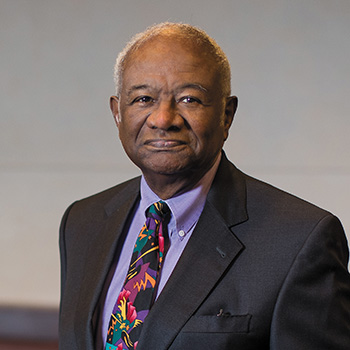
JAMES W. ‘JIM’ DYKE JR.
SENIOR ADVISOR, STATE GOVERNMENT RELATIONS, MCGUIREWOODS CONSULTING LLC, TYSONS
Lobbyist Jim Dyke has been a prominent figure in Virginia politics for 30 years, since he served as
Gov. L. Douglas Wilder’s secretary of education.
His clients include three universities — George Washington, Marymount and the foundation at George Mason University. And he’s a member of the powerful Virginia Growth and Opportunity (GO Virginia) Board, which allocates funding for economic development initiatives across the commonwealth.
Also a board member of the Virginia Early Childhood Foundation, Dyke chaired the Greater Washington Board of Trade and the Fairfax County Chamber of Commerce. He also has taught at both the Howard University and the University of Virginia law schools.
An honors graduate of Howard University and its law school, Dyke has racked up numerous honors, including being named one of the region’s “150 Most Powerful People” by Washingtonian magazine and receiving the Northern Virginia Chamber of Commerce “Lifetime Achievement Award.”
BEST ADVICE: Always keep the door of opportunity open for those who follow you
FIRST JOB: Cashier at A&P grocery store
MOST RECENT BOOK READ: “Between The World And Me,” by Ta-Nehisi Coates
JUSTIN FAIRFAX
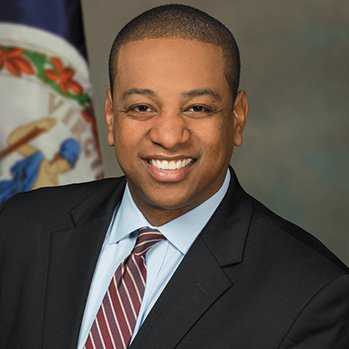
LIEUTENANT GOVERNOR, COMMONWEALTH OF VIRGINIA
It’s difficult to tell where Fairfax’s political future is headed, as one of several Democrats seeking the party’s 2021 gubernatorial nomination.
His bid is complicated by the fact that his own party spurned him but stopped short of pushing him out after two women came forward last year accusing Fairfax of sexual assault. No investigation has taken place, and Fairfax denies the claims. He’s also fighting back. He filed a defamation lawsuit against CBS and plans to appeal its February dismissal. He also has continued to argue his innocence on Twitter, more than a year after his accusers went public.
A lawyer, Fairfax earned his juris doctorate from Columbia Law School, where he was a member of the Columbia Law Review. He then served as assistant U.S. attorney for the Eastern District of Virginia and joined the 2004 John Kerry presidential campaign. He was working at Morrison & Foerster LLP before resigning in summer 2019 in the wake of last year’s allegations.
When protests broke out this year in Richmond, calling for the removal of Confederate statues on Monument Avenue, Fairfax was there. He defied the curfew set by political rival Mayor Levar Stoney and demanded that the state-owned statue of Gen. Robert E. Lee come down.
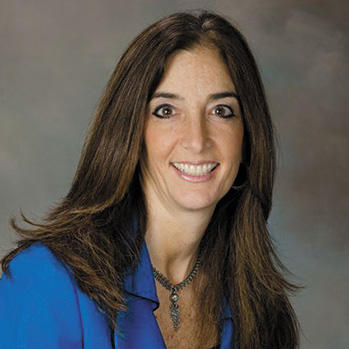
EILEEN FILLER-CORN
SPEAKER, VIRGINIA HOUSE OF DELEGATES, FAIRFAX
One of the biggest reasons Virginia is now considered a blue state boils down to geography. Northern Virginia is a Democratic stronghold, and this is where Filler-Corn emerged, winning a special election by a hair in 2010 to succeed David Marsden, who was elected to the state Senate.
Filler-Corn became minority leader of the Virginia House of Delegates in 2019, placing her in a prime leadership role during a pivotal election season. In a major power shift, Democrats took control of the Virginia General Assembly for the first time since 1993.
The more moderate Filler-Corn was chosen as speaker of the House, becoming the first woman, and first Jewish person, to hold the position in the legislative body’s 400-year history. Filler-Corn previously served as director of intergovernmental affairs for Govs. Mark Warner and Tim Kaine and as director of government relations at Arlington-based lobbying and consulting firm Albers & Co.
In her first session as speaker, the House passed a number of gun-control bills, as well as a raft of other Democratic priorities including LGBTQ nondiscrimination legislation, a sweeping clean energy act, decriminalizing simple possession of marijuana, increasing the minimum wage and ratifying the Equal Rights Amendment.
JENNIFER CARROLL FOY
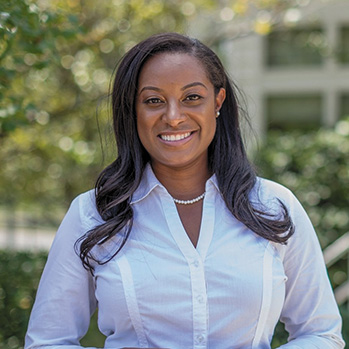
DELEGATE, VIRGINIA HOUSE OF DELEGATES, WOODBRIDGE
“Black girls like me” were told they wouldn’t amount to much, Foy once told an interviewer. However, “my grandmother … had different plans. She believed I had a lot to give.”
Foy now aims to make history, running to become the country’s first Black female governor and Virginia’s first female governor.
At age 17, the Petersburg native made history, too, winning a full scholarship to Virginia Military Institute in VMI’s third class of female cadets. After earning her law degree, she worked as a magistrate judge, public defender and defense attorney. Her 2017 statehouse bid was based on a platform of expanding Medicaid, raising the minimum wage and enacting criminal justice reform. As a delegate, she led the successful vote to pass the Equal Rights Amendment.
At VMI, Foy says, she was required to salute a statue of Confederate Gen. Thomas “Stonewall” Jackson every morning. Instead, she said, “I would … turn my eyes to the flag” and the values it represents.
“I’ve dedicated my entire life to fighting for those who cannot fight for themselves. I will continue to fight as the next governor of Virginia,” says Foy, who formally announced her bid for the 2021 Democratic gubernatorial nomination in May.
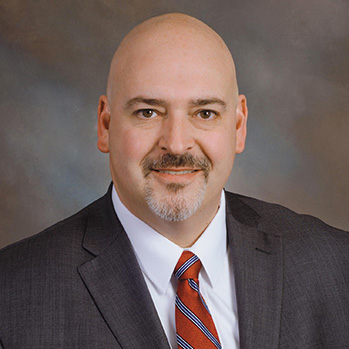
C. TODD GILBERT
HOUSE MINORITY LEADER, VIRGINIA HOUSE OF DELEGATES, SHENANDOAH
A member of the Virginia House of Delegates since 2006, Gilbert is the body’s current minority leader and former majority leader.
The pro-business Republican conservative and former prosecutor has received numerous awards during his legislative tenure for his work on social and public safety issues. He was named a Defender of Liberty by the American Conservative Union and 2013 legislator of the year by the Family Foundation. The Virginia Chamber of Commerce bestowed the same honor upon him in 2017.
Gilbert has an A-plus rating from the National Rifle Association and has received the Virginia Association of Commonwealth’s Attorneys’ “Champion of Justice Award.” His statehouse work also has been recognized by the Virginia Association of Chiefs of Police and the Virginia State Police Association. For his work with the Model General Assembly in Richmond, Gilbert also won the Virginia YMCA’s Service to Youth Award.
Gilbert most recently was in the news for his objection to Gov. Ralph Northam’s COVID-19 directive making mask-wearing mandatory indoors, and, in late May, Gilbert said that the possibility of taking legal action about the measure was under consideration.
CHARNIELE L. HERRING

HOUSE MAJORITY LEADER, VIRGINIA HOUSE OF DELEGATES, ALEXANDRIA
Herring had an early start in politics. At age 13, when Ronald Reagan was president, she testified before a government commission about health care coverage for military dependent children. After earning her juris doctorate from The Catholic University of America, former Gov. Tim Kaine appointed her to the state’s Council on the Status of Women. Ever since, she has been a champion of social justice and police reform.
In 2016, Herring was a main sponsor of legislation requiring police officer-involved shootings to be listed in a yearly crime report.
“I don’t think we should have police officers investigating themselves,” Herring said in an interview with the Virginia Mercury. “I think getting it out of police officers’ hands will help because I think it will help ensure that the data is collected.”
Herring also supported Gov. Ralph Northam’s efforts to make Juneteenth a state holiday.
In 2009, Herring became the first Black woman elected to represent Northern Virginia in Richmond, and in 2012, she became the first African American to chair the Democratic Party of Virginia. She has been the House Democratic Caucus chair since 2015.
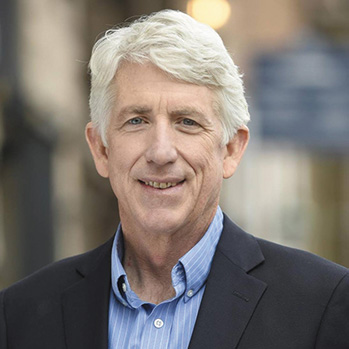
MARK HERRING
ATTORNEY GENERAL, COMMONWEALTH
OF VIRGINIA
Herring, a Democrat, has lived in Loudoun County since he was 12. He practiced law in Leesburg and represented the area as a state senator.
The two-term Virginia attorney general, who’s eyeing a 2021 gubernatorial bid, vowed this summer to do what it takes to give Gov. Ralph Northam the right to remove the state-owned Robert E. Lee monument from its prominent pedestal on Richmond’s Monument Avenue, writing that the governor “has both the authority and the moral obligation to remove this badge of white supremacy from its place of exaltation.”
Such positions, which he’s applied to other monuments in Virginia, might be hard to reconcile for people who felt betrayed when he apologized in 2019 for donning blackface at a party in 1980 while he was a University of Virginia student.
WHAT WOULD A COMPETITOR SAY ABOUT YOU? “He is relentless. He just will not give up.”
HOBBY/PASSION: Gardening
FIRST JOB: When I was 14, I bought 36 hens and I sold the eggs to my neighbors. That was my first entrepreneurial venture.
JANET D. HOWELL
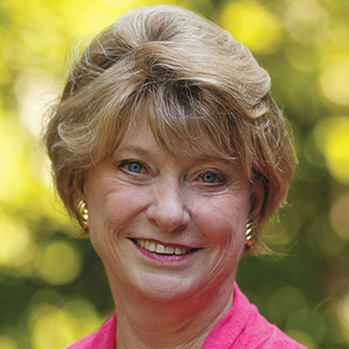
CHAIR, SENATE FINANCE AND APPROPRIATIONS COMMITTEE, SENATE OF VIRGINIA, RESTON
“Numerous significant bills that have failed under Republican majorities will pass this session,” said Howell, who in January assumed chairmanship of one of the most powerful committees in the legislature after Democrats took control of the General Assembly. Perhaps needless to say, her predictions have come to pass.
Laws enacted by the new Democratic-majority legislature include ratification of the Equal Rights Amendment and measures to improve gun safety and protect the environment. Voter protections were beefed up, abortion restrictions were eased and a state holiday honoring Gens. Thomas “Stonewall” Jackson and Robert E. Lee was abolished, while Election Day was designated a state holiday. The minimum wage, raised from $7.25 to $9.50, was slated to rise in January, but concerns about the economic effects of COVID-19 led to the increase being pushed back to May 2021. “I think it should go into effect now,” Howell said at the time.
Before her 1991 election to the Virginia State Senate (where she represents Fairfax County), she served as a legislative assistant in the Senate from 1989 to 1991. She also previously served as chair of the State Board of Social Services.
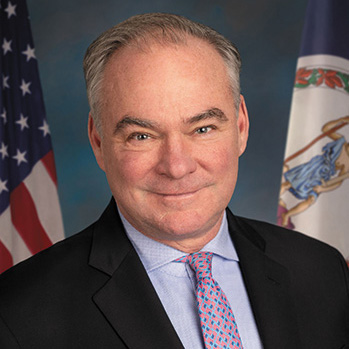
TIM KAINE
SENATOR, UNITED STATES SENATE, RICHMOND
A household name in Virginia, Kaine married into the political life. His wife, former Virginia Secretary of Education Anne Holton, spent her early teen years in Virginia’s Executive Mansion while her father, A. Linwood Holton Jr., served as governor.
A lawyer specializing in housing discrimination, Kaine won election to Richmond City Council in 1994 at age 36, becoming mayor in 1998. He became lieutenant governor in 2002, served as governor from 2006 to 2010, and then was elected Virginia’s junior U.S. senator in 2012.
But it was a call from Hillary Clinton that catapulted Kaine onto the national stage. As Clinton’s 2016 vice presidential running mate, Kaine crisscrossed the country pushing her agenda, highlighting his Spanish-speaking skills and rallying voters.
The election may not have gone his way, but his profile in the Senate was considerably elevated. He serves on the Armed Services Committee and has been a highly visible critic of the Trump administration on 24-hour news channels and in national media.
Recently, he was one of 133 co-sponsors of the Justice in Policing Act of 2020, an attempt to address police brutality concerns in the wake of George Floyd’s death. “The right way to deal with this,” Kaine said, “is accountability in the discipline of systems in police departments.”
TERRY McAULIFFE
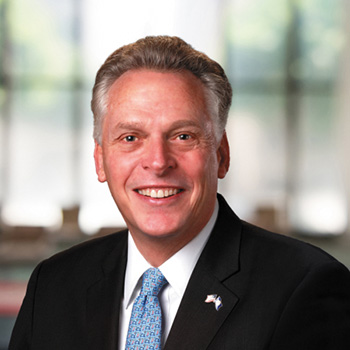
FORMER GOVERNOR OF VIRGINIA; GLOBAL STRATEGY ADVISER, HUNTON ANDREWS KURTH LLP, McLEAN
A Clinton family confidant, former Virginia Gov. McAuliffe was nearly three-fourths of the way through his term when Hillary Clinton lost her 2016 bid for president — upending any hopes he may have harbored about joining her administration.
But McAuliffe wasn’t about to ride off into the sunset after his term ended in January 2018.
Amid speculation that he’d run against President Donald Trump in 2020, McAuliffe took the idea off the table in April 2019. In July 2019, he published his second book, “Beyond Charlottesville: Taking a Stand Against White Nationalism,” and later in 2019 took a job as global strategy adviser for the Centre for Information Policy Leadership, a Washington, D.C.-based think tank run by Hunton Andrews Kurth LLP.
McAuliffe also spent much of 2019 campaigning for Virginia Democrats, who secured a statehouse majority for the first time in 26 years.
But McAuliffe may also have been laying his own foundation as Virginia’s once and future governor. Eyeing a 2021 gubernatorial run, he raised $1.7 million in May and June via his political action committee, Common Good VA.
McAuliffe served as chair of the Democratic National Committee from 2001 to 2005. Before his political career, McAuliffe co-founded the Federal City National Bank, becoming its chairman at age 30.

JENNIFER L. McCLELLAN
SENATOR, SENATE OF VIRGINIA, RICHMOND
McClellan wants to make history. In June, she declared her candidacy for the Democratic nomination for governor, and, if she prevails over what is sure to be a crowded field, she would be the first woman and the second African American — L. Douglas Wilder was the first — to hold the job.
“I am not running to be a Black woman governor of Virginia. I’m running in order to create a future that comes to terms with our past,” McClellan told ABC News.
The corporate lawyer for Verizon Wireless has represented her district for 11 years as a delegate and four years as a senator. During her statehouse tenure, she has taken the lead on bills to ratify the Equal Rights Amendment and to build a state-based health exchange under the Affordable Care Act. She also spearheaded efforts to stop workplace and housing discrimination.
A graduate of the University of Richmond and the University of Virginia School of Law, McClellan is vice chair of the state Democratic Party and is a member of the Virginia Legislative Black Caucus.
THOMAS K. ‘TOMMY’ NORMENT
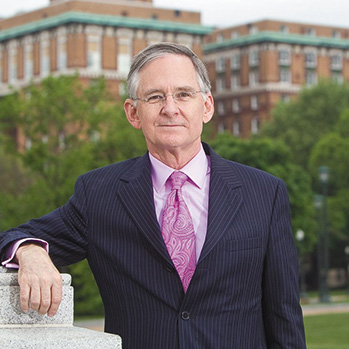
SENATE MINORITY LEADER, SENATE OF VIRGINIA, WILLIAMSBURG
In his nearly 30-year career as a Republican state senator, Norment has been known as an advocate of right-to-work laws, higher education and transparency in government. He is reliably pro-business.
Although Norment heads the Senate Republican Caucus, last month he lost his seats on the Virginia Growth and Opportunity Board, the Commission on Electric Utility Regulations and the Commission on Employee Retirement Security and Pension Reform, replaced by newly empowered Democrats.
Norment’s career has not been without controversy, including a DUI charge, an admitted extramarital affair and being an editor of the 1968 Virginia Military Institute yearbook that included photographs of students in Ku Klux Klan robes and blackface. (Norment has condemned the use of blackface, noting he did not take or appear in any of the photos.)
Norment earned his law degree from William & Mary and is an attorney with Kaufman & Canoles. He has served on organizations such as the Colonial Williamsburg board of trustees and the Jamestown-Yorktown Foundation board of directors.
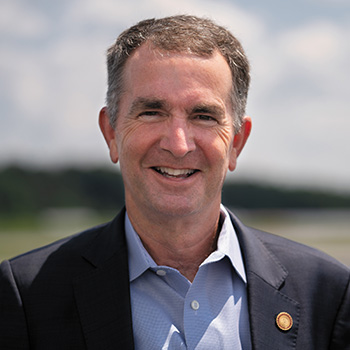
RALPH NORTHAM
GOVERNOR, COMMONWEALTH OF VIRGINIA
Having a medical doctor serve as Virginia governor during a global pandemic seems like the stars aligned. But Gov. Ralph Northam, a pediatric neurologist, has had plenty of ups and downs while managing the COVID-19 crisis, including taking criticism from Republicans over his mandates that Virginians must wear facial coverings indoors.
He’s been in the spotlight increasingly during the pandemic, tapping into his public platform during regular news conferences and navigating the perils of reopening the commonwealth for commerce.
An Eastern Shore native who served in the Army, Northam was a state senator from 2008 to 2014 and served as lieutenant governor from 2014 to 2018, until he was sworn in as Virginia’s 73rd governor.
Despite many pundits and politicos pronouncing his political career dead after a yearbook blackface scandal captured national press in February 2019, Northam rebranded himself as a warrior for racial equity. He added a chief diversity officer to his Cabinet, is making Juneteenth a permanent paid state holiday and quickly waded into the debate over removing Confederate iconography, vowing to take down the state-owned statue of Gen. Robert E. Lee on Richmond’s historic Monument Avenue.
Northam also has seen his party grow in power, recapturing the General Assembly for the first time in a generation.
LARRY SABATO
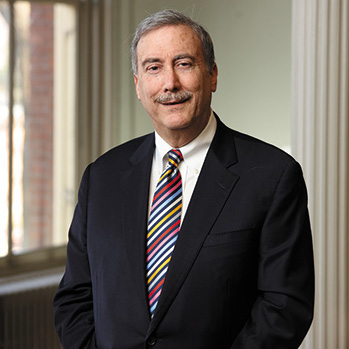
ROBERT KENT GOOCH PROFESSOR OF POLITICS, UNIVERSITY OF VIRGINIA, CHARLOTTESVILLE
The director of the University of Virginia’s Center for Politics and a frequently quoted pundit by state and national media, Sabato has built a reputation as a political soothsayer. His political newsletter and website, “Sabato’s Crystal Ball,” outlines potential electoral outcomes for federal and state contests.
Earlier this year, Sabato’s political acumen was the target of a Trump tweet in which the president said Sabato, who’d predicted a Clinton victory, “never had a clue” about the demographics of voters in 2016. Sabato tweeted back, listing other targets of Trump’s wrath, such as Lt. Col. Alexander Vindman, who testified during Trump impeachment hearings and, as a result, lost his job with the National Security Council.
“I had no idea I was in such good company,” Sabato tweeted.
The author of more than 20 books and many essays, Sabato is known for his sometimes sardonic, even sarcastic, commentary, such as, “I doubt God would want to touch America’s tax code, since it is already located in the third rung of Hell.”
The Norfolk-born Sabato is a Phi Beta Kappa graduate of U.Va., where, as an undergraduate, he was president of the student government. He holds a doctorate in politics from Oxford University.
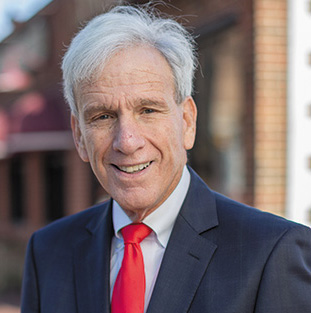
RICHARD ‘DICK’ SASLAW
SENATE MAJORITY LEADER, SENATE OF VIRGINIA, FAIRFAX
The most senior member of the General Assembly, Saslaw began his state political career when he was elected to the House of Delegates in 1976. He’s served in the state Senate since 1980.
A University of Maryland graduate, Saslaw is Senate majority leader and chairman of the Commerce and Labor committee.
His seniority proves an advantage to his priorities, such as Medicaid expansion, an issue under debate for years and one of Gov. Northam’s early wins.
Saslaw is considered more moderate, compared with younger, more progressive colleagues in the House and Senate. In 2020, he blocked a bill banning assault weapons and an energy bill that would have cut into Dominion Energy’s profits.
Saslaw says the 2021 General Assembly session will address the issues coming to the forefront in racial justice protests across the nation. In a June editorial, Saslaw and state Sen. Mamie E. Locke wrote, “Over the coming months, we will be introducing measures to incorporate mandatory implicit-bias training for law enforcement across Virginia, reform parole, sentencing, expungement and barrier crimes, and eliminate mandatory minimum sentences in a system that has disproportionately impacted Black Virginians.”
LUKE TORIAN
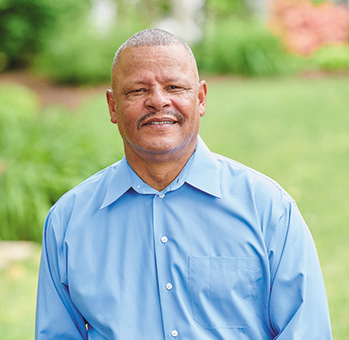
CHAIR, HOUSE APPROPRIATIONS COMMITTEE, VIRGINIA HOUSE OF DELEGATES, PRINCE WILLIAM
In June, Torian beat his primary challenger by a whopping 53 points. Now, his chances of election to a sixth term in the House of Delegates are just about a lock, because, as has been the case since 2011, he is running unopposed.
A minister for more than 35 years, Torian is the pastor of First Mount Zion Baptist Church in Dumfries.
As a legislator, he has passed more than 40 bills and resolutions to improve criminal justice policies, expand Medicaid and promote retirement security and raise pay for teachers. He received a perfect 100% score from the abortion-rights organization NARAL, and a score of zero from the Virginia Citizens Defense League, a conservative gun-rights organization. In 2020, Torian introduced the Community Policing Act, which requires police officers to record the race of drivers they pull over and provide information about racial profiling. It took effect July 1.
Torian’s honors include winning the Virginia Education Association’s Solid as a Rock award five times and being named the 2019 Legislator of the Year by the Virginia chapters of the Military Officers Association of America.
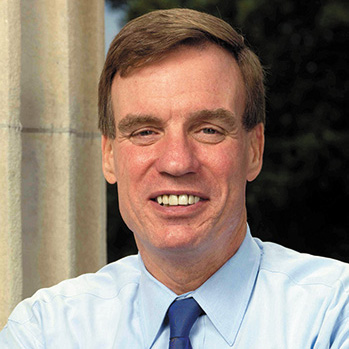
MARK WARNER
SENATOR, UNITED STATES SENATE, ALEXANDRIA
It’s been about 25 years since Mark Warner first ran for public office — not including his terms as class president at Rockville High School. He made a bold move to run against popular Republican Sen. John Warner in 1996 and lost. But the close race paved the way for his successful bid for Virginia governor in 2002.
When his term ended, Mark Warner made a successful Senate run for after John Warner retired. He will seek his third term in the November elections. He serves as vice chair of the Senate Intelligence Committee, which put him in national headlines during the Mueller probe of Russian interference with the 2016 election.
His savvy buying and trading of cellular franchise licenses in the mid-’80s helped him amass a fortune of more than $200 million, ranking him among the wealthiest members of Congress.
BEST ADVICE: Don’t be afraid to fail. I personally failed not once but twice before I found success in business. … Had I been afraid to try again after my first two failures, I wouldn’t be where I am today.
BEVERAGE OF CHOICE: Milkshakes count as a beverage, right?
MOST RECENT BOOK READ: “The New Jim Crow: Mass Incarceration in the Age of Colorblindness,” by Michelle Alexander





